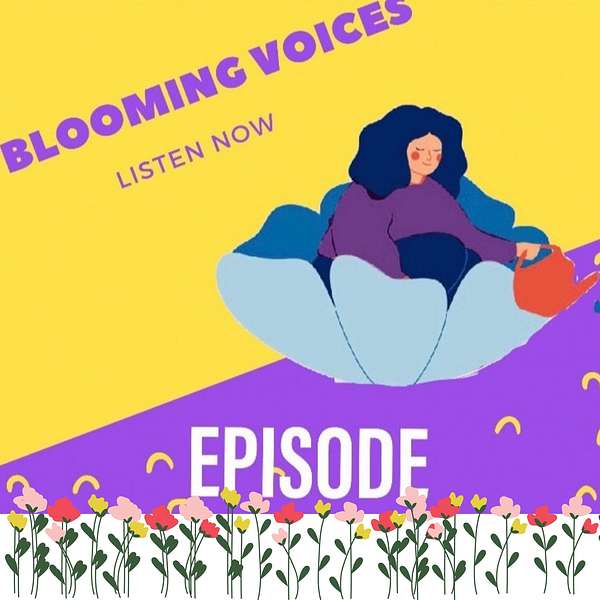
Blooming Voices Podcast
Do you listen to all the experts on podcasts and think, “no wonder they’re experts; they’re awesome, they’re smart, they’re....” Stop right there! You’re awesome!You have a story to tell, and there really is no one like you. Embrace your story. Celebrate yourself. Of course we all have room for growth, and no one is ever done growing. Just because you don’t know the answer to something today doesn’t make you a loser or does it? Naaa, of course it doesn’t! It makes you a human on life’s journey, just learning new things day to day! The more you know, the more you know what you don’t know. You're a little bud in the process of blooming... ready to share your truth and grow.Join two halves of two twin pairs as we share inspiring stories and a variety of perspectives about identity. We talk about our own unique backgrounds and how it unravels in the pursuit of finding identity, individuality, and an authentic voice. Religion, confrontations, twin questions, equality, being voice over artists, entrepreneurship, travel, movies... nothing is off limits! A true variety of topics and questions is how we grow best.
Blooming Voices Podcast
Episode 33 - Cancel Culture
•
Jordan Drayer and Dalia Ramahi
•
Season 3
•
Episode 33
Cancel culture today is both good and bad. Sometimes we have to learn to get along with those hold opposing views, it's possible to like the art, not the artist, and we can't control how others feel.
Takeaways
- You can like the art but not the artist. The two can be separate unless the art is the artist.
- Cancel culture has its merits, especially for those that cause harm in society with their words/actions.
- If something doesn’t align with your values, you have the right to cancel it out. You don’t have the right to force your values down everyone’s throat.
- In contrast, you have the right to like what you like. If you feel like you can’t be yourself or unsafe with your “friends,” they are not true friends.
- People take sides on things they don’t even know about - why?
- With information moving at lightning speed, we can sometimes jump to conclusions if things are shared without context. This is a symptom of the tribal mindset we find ourselves in.
- If you’re confident in yourself and why you like a thing, then you won’t be “corrupted” by the artist/sports player/politician.
- Individuals in society implicitly agree to a set of collective values and standards that become common practice. When the majority no longer agree with these rules or ideas, they cancel it. That is how we got the Civil Rights Act and ended Jim Crow laws as they used to be.
- Cancel culture is not bad but like with anything, it can be abused.
- You can only live and exist from your own experience. We can try to understand others, but we’ll never really know what it feels like for them.
- Sometimes we have to work or live with people who have different beliefs; we can enjoy other people if we can put our disagreements aside.
- Finding ways to engage those you don’t agree with in meaningful ways can go a long way to reconciling conflicting views. At the very least, you understand why they think that way.
- It’s hard to cancel people who gained fame before the Internet.
- Ask yourself why you’re triggered by something, why you feel the need to stop others from enjoying that thing?
- You can still support a cause, like Ukraine or ALS, in meaningful ways that aren’t trendy to grab attention.
- If all you’re looking for is negative things to back up your opinion, that is all you will see.
Resources
- https://www.britannica.com/story/pro-and-con-is-cancel-culture-good-for-society
- https://www.washingtonpost.com/business/2022/04/21/desantis-disney-gop-business/
- https://www.theatlantic.com/international/archive/2020/07/why-millennial-harry-potter-fans-reject-jk-rowling/613870/
- https://markmanson.net/no-you-cant-make-a-person-change
- https://www.verywellmind.com/the-mental-health-effects-of-cancel-culture-5119201
- https://www.verywellmind.com/negative-comments-on-social-media-5090286
Social Media
- Instagram - https://www.instagram.com/bloomingvoicespodcast/
- Twitter - https://twitter.com/VoicesBlooming
- Email - bloomingvoicespodcast@gmail.com
- Website - https://www.bloomingvoices.com/